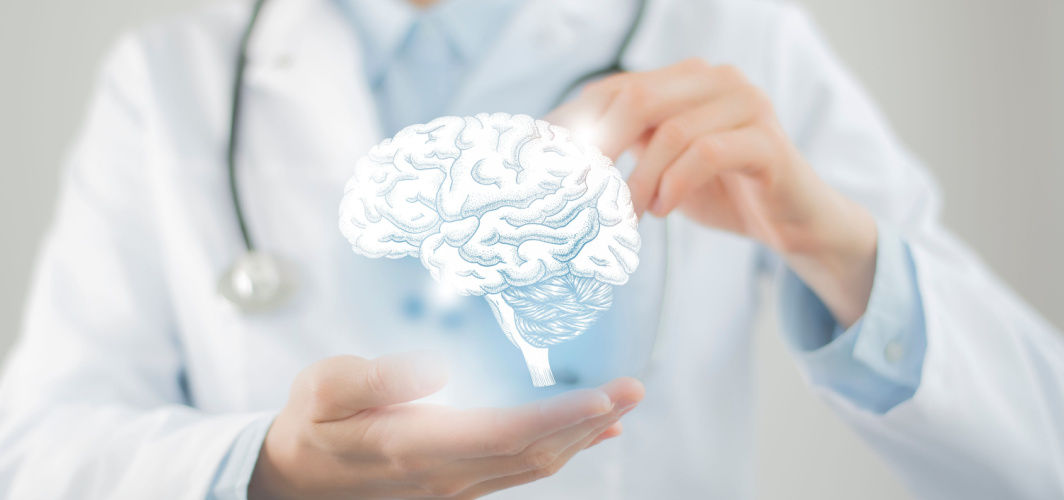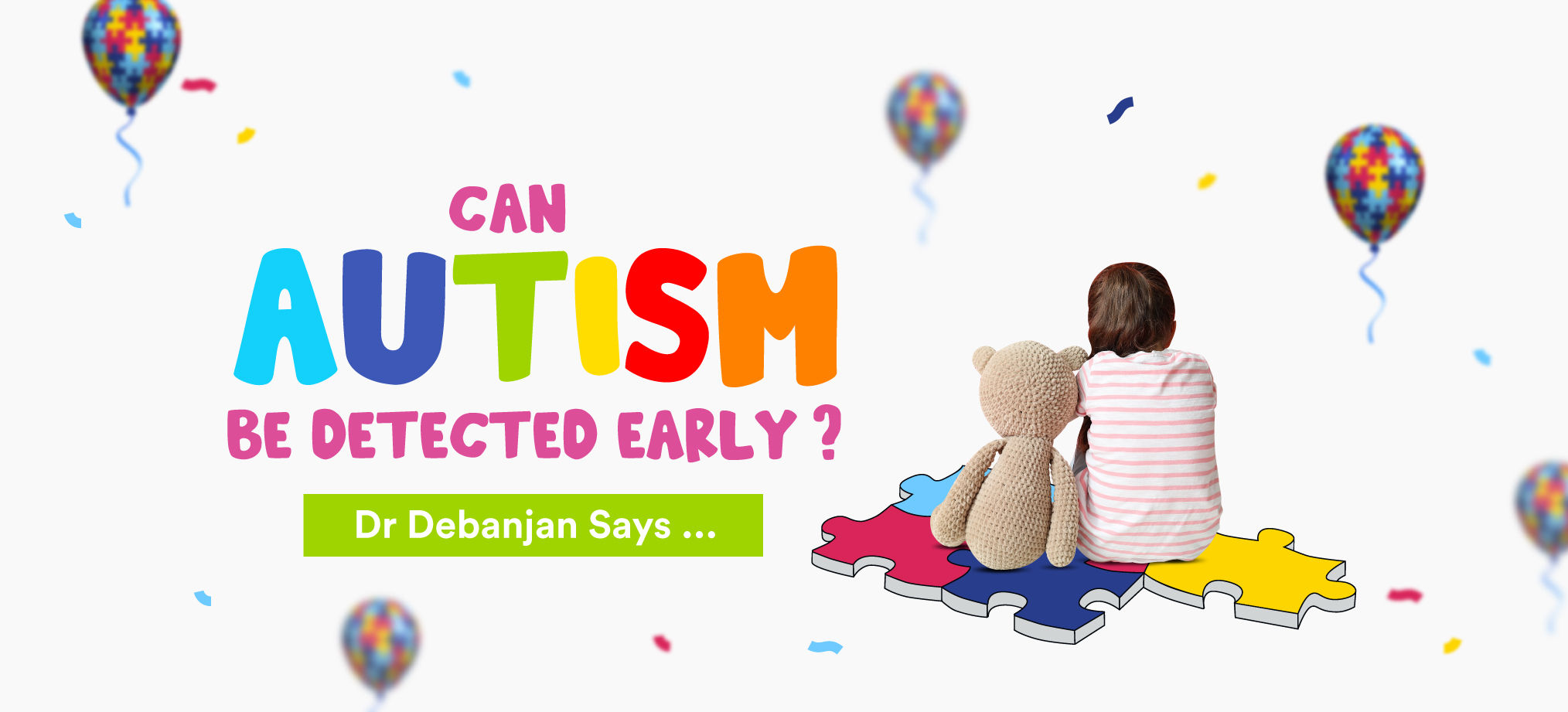Neurology
What Are The Early Signs Of Brain Cancer?
9 min read
By Apollo Pharmacy, Published on - 26 October 2023
Share this article
0
0 like

Brain cancer is a serious condition that occurs when abnormal cells grow uncontrollably in the brain. It can originate in the brain itself or spread from other parts of the body. Therefore, it is important to be aware of the early warning signs of brain cancer. In this article, we will explore the different symptoms that may indicate the presence of brain cancer. By understanding these first signs of brain cancer, you can be proactive in seeking medical attention and receiving timely treatment.
What is Brain Cancer?
Brain cancer is a complex and potentially life-threatening condition characterised by the abnormal and uncontrolled growth of cells within the brain. These cells form masses called tumours, which can interfere with normal brain function. Unlike other organs in the body, the brain is encased in the skull, and any abnormal growth within this confined space can lead to a range of symptoms and complications.
1. Types of Brain Cancer
Brain cancer can be categorised into two main types:
- Primary Brain Tumours: Primary brain tumours originate in the brain itself.
- Metastatic Brain Tumours: They occur when cancer cells from other parts of the body spread to the brain.
2. Risk Factors for Brain Cancer
Several factors may increase the risk of developing brain cancer. It includes:
- Age: Age is a significant factor, with older individuals being at higher risk.
- Genetic History: The genetic history of brain cancer or other cancers can also play a role.
- Radiation Exposure: Radiation exposure can happen through either medical treatments or environmental factors and is another risk factor.
- Genetic Conditions: Certain genetic conditions, such as neurofibromatosis or Li-Fraumeni syndrome, can predispose individuals to develop brain cancer.
Common Symptoms of Brain Cancer
Some key signs you have brain cancer include:
1. Headaches and Migraines
Headaches are one of the common brain cancer symptoms, and they can vary in frequency and intensity. While occasional headaches are usually not a cause for concern, persistent headaches that worsen over time should not be ignored.
2. Seizures and Convulsions
Seizures can manifest in different ways, such as generalised tonic-clonic seizures or focal seizures. These seizures can be triggered by various factors like stress, lack of sleep, or certain medications like antimalarial drugs (e.g., mefloquine) and certain antipsychotic medications (e.g., clozapine and olanzapine).
Convulsions are a type of seizure characterised by uncontrolled and violent muscle contractions. Brain cancer-associated convulsions are concerning and may indicate an aggressive or rapidly growing tumour.
3. Cognitive and Behavioral Changes
Brain cancer can also lead to cognitive and behavioural changes. Some common cognitive symptoms include:
- Memory loss
- Confusion
- Difficulty concentrating
- Problems with decision-making
Additionally, personality changes, mood swings, and irritability can also be signs you have brain cancer.
4. Vision and Hearing Problems
Changes in vision or hearing can occur due to brain tumours affecting the nerves responsible for these senses. Blurred or double vision may result from pressure on the optic nerve, while hearing loss or ringing in the ears (tinnitus) may occur due to the involvement of the auditory nerves.
5. Motor Skill Impairment
Brain tumours can affect motor skills and coordination. Difficulty with coordination and balance, as well as weakness or numbness in limbs, may indicate brain cancer.
Less Common Symptoms of Brain Cancer
Some symptoms of brain cancer are less common than the more typical first signs of brain cancer, and it's crucial not to ignore them.
1. Speech and Language Difficulties
Slurred speech or difficulty finding words can be less common symptoms of brain cancer. The tumour can affect the areas of the brain responsible for language and speech, leading to communication difficulties.
2. Changes in Sensation and Perception
In some cases, brain cancer can cause changes in sensation and perception. This includes an altered sense of taste or smell, where things may taste or smell differently than before. Additionally, sensitivity to light or touch may occur.
3. Endocrine Dysfunction
Endocrine dysfunction refers to hormonal imbalances affecting metabolism, growth, and reproduction. Brain tumours can disrupt the normal functioning of the endocrine system, leading to various hormonal imbalances. Symptoms may include:
- Sudden weight gain or loss
- Changes in appetite
- Menstrual irregularities
- Decreased libido
- Fatigue
Diagnosis and Treatment Options for Brain Cancer
The diagnosis and treatment options for brain cancer depend on several factors, including the tumour's type, size, and location.
1. Diagnostic Tests for Brain Cancer
Some of the common diagnostic tools used by healthcare professionals are:
- Magnetic Resonance Imaging (MRI): MRI is a non-invasive imaging technique that uses powerful magnets and radio waves to create detailed images of the brain. It helps in visualising tumours and determining their size, location, and characteristics.
- Computed Tomography (CT) Scan: A CT scan uses X-rays and computer technology to generate cross-sectional images of the brain. It can provide valuable information about the presence, size, shape, and location of brain tumours.
- Biopsy: A biopsy involves obtaining a small sample of tissue from the brain tumour for examination under a microscope. It helps in confirming the diagnosis and identifying the specific type of brain cancer.
2. Treatment Approaches for Brain Cancer
The treatment options for brain cancer depend on several factors, including the type and stage of the cancer, as well as the patient's overall health.
- Surgery: Surgical removal of the tumour is often the initial step in treating brain cancer. Surgeons aim to remove as much of the tumour as possible without causing damage to critical brain structures.
- Radiation Therapy: Radiation therapy involves using high-energy radiation beams to destroy cancer cells or shrink tumours. It can be delivered externally or internally through implants placed near the tumour.
- Chemotherapy: Anti-cancer drugs can be administered orally or intravenously to kill cancer cells or inhibit their growth. Chemotherapy may be used alone or in combination with other treatments.
- Targeted Therapy: This approach focuses on specific molecules or genetic abnormalities present in cancer cells. Targeted drugs interfere with these abnormalities, helping to slow down tumour growth.
Supportive Care for Brain Cancer Patients
Incorporating lifestyle changes and seeking supportive care can play a significant role in improving the quality of life for individuals with first signs of brain cancer and their caregivers.
1. Dietary Recommendations
A healthy and balanced diet plays a major role in managing brain cancer.
- Aim for a diet that includes a variety of fruits, vegetables, whole grains, lean proteins, and healthy fats.
- Additionally, foods rich in antioxidants and anti-inflammatory properties can be beneficial for brain cancer patients.
- Include foods such as berries, leafy greens, turmeric (haldi), ginger, and omega-3 fatty acids found in fish like salmon.
2. Physical Activity and Exercise
Regular exercise offers numerous benefits for brain health. Engaging in physical activity can help in:
- Improving mood
- Reducing fatigue
- Enhancing cognitive function
- Boosting overall well-being
Consult with your healthcare team before starting any exercise routine and tailor it to your individual needs. Some suitable exercises for individuals with brain cancer may include walking, yoga, swimming, or gentle aerobic exercises.
3. Emotional Support and Counseling
Coping with a brain cancer diagnosis can be challenging for both patients and caregivers. It is essential to seek emotional support and consider counselling services to help navigate through this difficult journey. Coping strategies include:
- Mindfulness meditation
- Journaling
- Engaging in hobbies
Support groups can provide a safe space to connect with others who are going through similar experiences. Professional counselling services can offer guidance and support in managing emotions, anxiety, and stress related to the diagnosis.
When to Seek Medical Attention for Brain Cancer?
The severity of brain cancer symptoms and their impact on your daily activities should not be underestimated. If you find that your symptoms are interfering with your ability to perform routine tasks or affecting your overall quality of life, it is crucial to consult a healthcare professional.
1. Recognising the Red Flags
It is important to be aware of the red flags that may indicate brain cancer symptoms.
- Two main factors to consider are the rapid onset and progression of symptoms and the severity of their impact on daily life.
- Brain cancer symptoms often appear suddenly and worsen over time.
- Therefore, if you experience a sudden onset of symptoms such as persistent headaches, unexplained seizures, or vision changes, it is essential to seek medical attention promptly.
2. Consulting a Healthcare Professional
When experiencing potential brain cancer symptoms, it is vital to consult with a specialised neurologist or oncologist. These medical professionals have the expertise and knowledge necessary to diagnose and treat brain cancer effectively.
During the consultation, it's important to ask relevant questions to gain a better understanding of your condition. Inquire about potential treatment options, prognosis, and any additional tests that may be required for an accurate diagnosis.
Conclusion
In conclusion, it is important to understand the importance of early detection and seeking medical attention promptly for brain cancer symptoms. Recognising the first signs of brain cancer can significantly improve the chances of successful treatment and better outcomes. By spreading awareness about these symptoms, we can empower individuals to recognise and act on potential warning signs of brain cancer. Be proactive in monitoring your body's signals and don't hesitate to seek medical attention if you notice any unusual symptoms.
Foods rich in antioxidants and anti-inflammatory properties can be beneficial for brain cancer patients.
FAQs
Q. Do brain cancer symptoms differ between adults and children?
While some brain cancer symptoms can be similar in both adults and children, there may be variations in how these symptoms manifest and are perceived. For example, in adults, symptoms like personality changes, mood swings, and cognitive alterations are readily describable. In children, distinguishing between normal developmental behaviour and changes caused by brain cancer can be challenging.
Q. Can a person have brain cancer without experiencing severe headaches?
Yes, brain cancer can develop without causing severe headaches. Other symptoms, such as neurological changes or cognitive issues, may be more prominent.
Q. Can brain cancer symptoms come and go over time?
Yes, brain cancer symptoms can fluctuate, especially in the early stages. However, persistent or worsening symptoms should be evaluated by a medical professional.
Q. Can brain cancer cause frequent, unexplained nosebleeds?
While nosebleeds are more commonly associated with other conditions, very rarely, a brain tumour might lead to nosebleeds, especially if it involves nasal passages.
Q. Can hair loss occur as a symptom of brain cancer?
Hair loss itself is not typically a direct symptom of brain cancer. However, cancer treatments such as chemotherapy may lead to hair loss as a side effect.
Neurology
Consult Top Neurologists
View AllLeave Comment
Recommended for you

Neurology
Understanding Autism: Insights By A Neuropsychiatrist
It is important to raise awareness about autism to reduce the stigma associated with the condition, thus making life easier for the people affected. Read to know more.

Neurology
Memory, Behaviour & Beyond: All About The ‘Gray’ Of Alzheimer’s Disease
Alzheimer’s Disease is an illness of the brain known to cause a gradual loss in memory and other cognitive abilities. Read more about the disease in this blog.

Neurology
Epilepsy: Types, Causes, Symptoms, Remedies & Cure
Learn about the types, causes, symptoms, and treatment options for epilepsy. Discover how lifestyle factors and new technologies can help individuals manage this neurological disorder effectively.
Subscribe
Sign up for our free Health Library Daily Newsletter
Get doctor-approved health tips, news, and more.
Recommended for you

Neurology
Understanding Autism: Insights By A Neuropsychiatrist
It is important to raise awareness about autism to reduce the stigma associated with the condition, thus making life easier for the people affected. Read to know more.

Neurology
Memory, Behaviour & Beyond: All About The ‘Gray’ Of Alzheimer’s Disease
Alzheimer’s Disease is an illness of the brain known to cause a gradual loss in memory and other cognitive abilities. Read more about the disease in this blog.

Neurology
Epilepsy: Types, Causes, Symptoms, Remedies & Cure
Learn about the types, causes, symptoms, and treatment options for epilepsy. Discover how lifestyle factors and new technologies can help individuals manage this neurological disorder effectively.



